Acupressure For The Eyes – 10 Massages For Better Vision
Improve your vision and relax your eyes in the comfort of your own home.
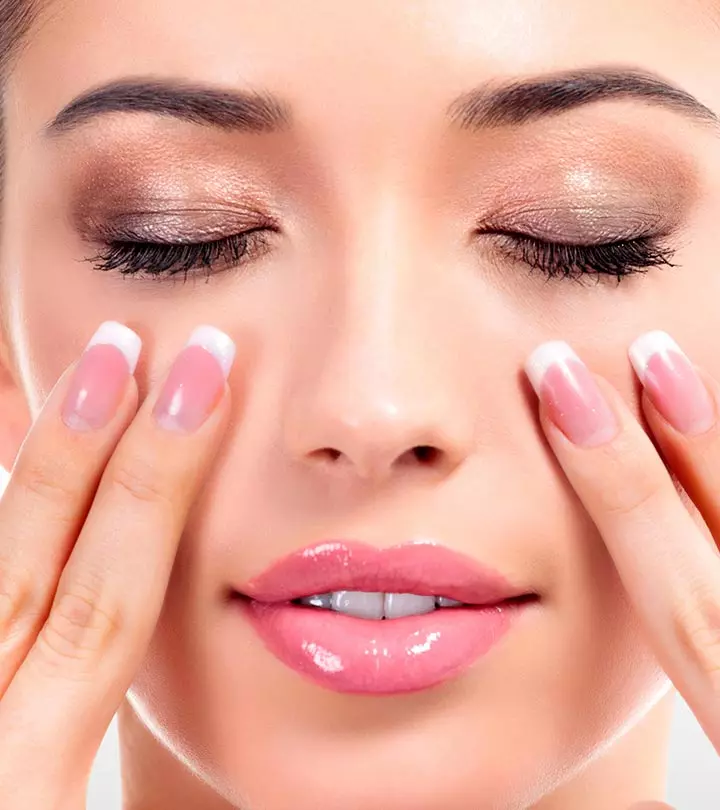
Image: Shutterstock
Acupressure is a traditional Chinese Medicine that encourages the steady flow of energy through 14 channels in the body that focuses on your overall health and wellness. Massaging the pressure points with the fingers helps reduce pain, nauseai An uneasy feeling in the stomach that causes an urge to vomit but doesn’t always lead to vomiting. in people with cancer, anxiety, blood pressure, and weight and improves alertness (1), (2), (3), (4), (5), (6). Studies suggest that acupressure is effective for the eyes and results in vision improvement in kids and adults (7), (8), (9). This article discusses acupressure points, 10 acupressure massages for eyes, and the benefits for eye pressure relief. Keep reading!

 Workout Blueprint: Acupressure Points For Eyes
Workout Blueprint: Acupressure Points For Eyes- Frequency: Daily
- Benefits: Significantly improve vision health, relieve eye tension, relax the eyes, and may help manage glaucoma.
- Equipment Needed: No
- Space Required: Small area
- Assistance Required: No
- Who Should Avoid: Individuals with eye infections or serious eye conditions
Note: You must consult an eye doctor and a professional acupressure therapist.
In This Article
Acupressure For The Eyes
Acupressure is an ancient therapy that has been used to treat and cure various diseases. Acupressure therapy is a part of ancient alternative medicine that revolves around meridian lines through which energy flows. When the energy flow is obstructed at some points, these spots feel painful and cause various illnesses.
Acupressure helps in flaking away the barrier or reshuffling the accumulated energy. Acupressure has often been used to reduce eye problems, like myopia or shortsightedness, cataract, presbyopiai A condition in which the eyes lose the ability to focus on nearby objects due to loss of elasticity of the lens of the eyes. , hypermetropiai A condition where distant objects are seen clearly but near objects appear blurred. It is also known as far-sightedness. , color blindness, astigmatismi A common vision problem due to imperfection in the curvature of the lens that causes blurred, distant and near vision. , cataracti Clouding of the natural lens of the eye which develops over the course of years and causes blurry vision. , and amblyopiai A condition which causes decreased vision in one eye due to abnormal visual development early in life. .
 Did You Know?
Did You Know?If you want to do the massages correctly, you must know the acupressure points for the eyes. Here are four acupressure points for the eyes:
Key Takeaways
- It is an ancient Chinese healing method in which pressure is applied to different points of the body to cure various illnesses.
- Acupressure, when done by a professional, may improve one’s eyesight.
- Points on the nose bridge and in between the eyebrows can be massaged to reduce stress and may help in eye strain prevention.
- Acupressure eye massages may also help with glaucoma.
Acupressure Points For The Eyes
1. Zan Zhu Point
This point is located at the inner corner of the eye, close to your nose. Massage this area for painful eyes, dryness, itchy eyes, tearing, and headaches.
2. Yang Bai Point
It is located just above the left eye on the forehead. Massaging this point can help relieve glaucomai A group of eye conditions that damage the optic nerve. It usually happens due to increased pressure inside the eye. , headaches, and eye twitching.
3. Cheng Qi Point
This point is located directly under the center of the eye. Massaging this area helps relieve redness, conjunctivitisi An inflammation or infection of the transparent membrane that lines eyelids and covers the white portion of the eye. , eye pain, and twitching.
4. Si Zhu Kong Point
This point is located at the end of the eyebrow, away from the eyes. Massaging this point helps reduce headaches and migraines.
 Did You Know?
Did You Know?With these points in mind, let’s see a few acupressure massages for eye health maintenance.
10 Acupressure Massages For The Eyes
1. Third Eye
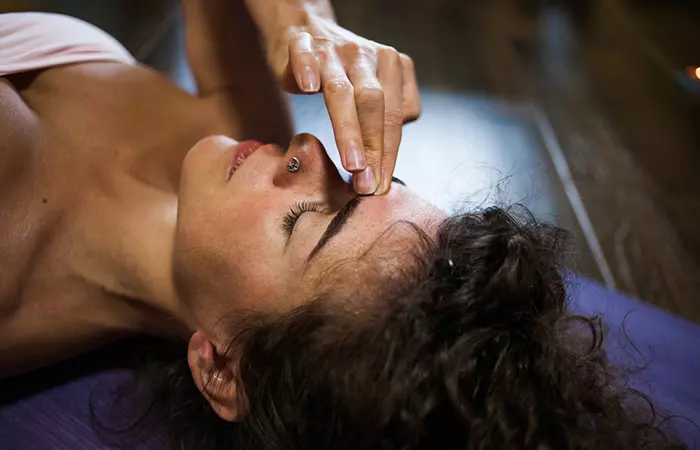
Massaging the “third eye” point helps reduce stress, eye strain, headaches, and nasal congestion and relaxes the eyes. This massage also helps in eye muscle relaxation and eye circulation improvement. Here’s how to do it:
- Place your ring finger between your eyebrows.
- Gently massage the area in a circular motion or just press.
- Do this for 10 minutes.
2. Bridge Of The Nose
Massaging the bridge of the nose helps relieve redness, stress, sinus pain, and eye strain.
Here’s how to do it:
- Place your thumbs on the bridge of the nose, close to the inner corner of your eyes, below the eyebrows.
- Close your eyes. Apply gentle pressure to these points.
- Do this for 10 minutes.
3. Nostrils Point
This massage helps relieve eye strain, headache, sinus pain, and nasal congestion.
- Place your index fingers on the sides of your nose.
- Press the sides of your nostrils gently.
- Do this for 5 minutes.
4. Edge Of The Eyes
Massaging this point regularly may help improve your vision. Here’s how to do it:
- Place your index finger on the inner corner of your eyes, closer to the bridge of the nose.
- Close your eyes and apply gentle pressure.
- Do this for 5 minutes.
5. Tips Of The Thumbs
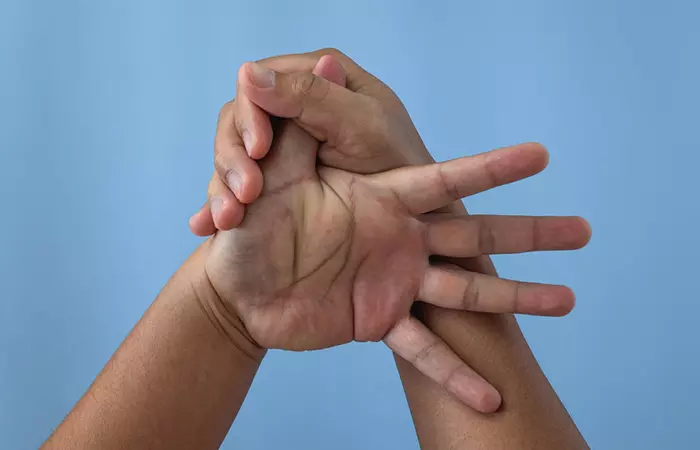
Massaging the tips of the thumbs may help improve your eyesight and relax your eyes. Here’s how to do it.
- Sit on a chair and relax.
- With the tip of your right thumb, massage the tip of your left thumb.
- Do it for 5 minutes.
6. Tips Of The Big Toes
This massage helps relax and increase blood flow. Follow these steps to massage the tip of the big toe.
- Sit on a chair.
- Place your right leg on your left.
- Place your left thumb on the tip of the right big toe.
- Press gently or use a circular motion to massage the big toe.
- Do the same with your left big toe as well.
- Do it for 10 minutes.
7. Surrounding The Eyes
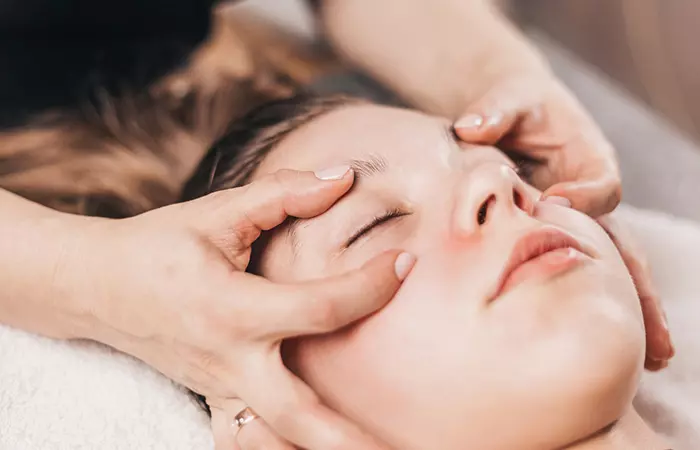
This massage helps improve vision by increasing blood flow and relaxing the eyes. It also helps relieve sinus pain and reduces puffiness under the eyes. Here’s how to do it.
- Sit on a chair.
- Place your index and middle fingers under your eyes, on the eye socket.
- Gently press and move your fingers around the eye socket.
- Do this for 10 minutes.
8. Meridian Exercise
This eye exercise helps reduce hazy vision and relaxes the eyes. Here are the steps to do this exercise:
- Sit on a chair and close your eyes.
- Count to 10 and open your eyes.
- Fix your gaze on an object 6-10 feet away.
- Repeat 10 times.
9. Tongziliao
Massaging the Tongziliao point helps reduce dark circles and under-eye puffiness. Here’s how to do it:
- Sit on a chair.
- Place your index finger on the outer corner of your eye socket, over the cheekbone.
- Press this point gently.
- Do this for 5 minutes.
10. Shibai
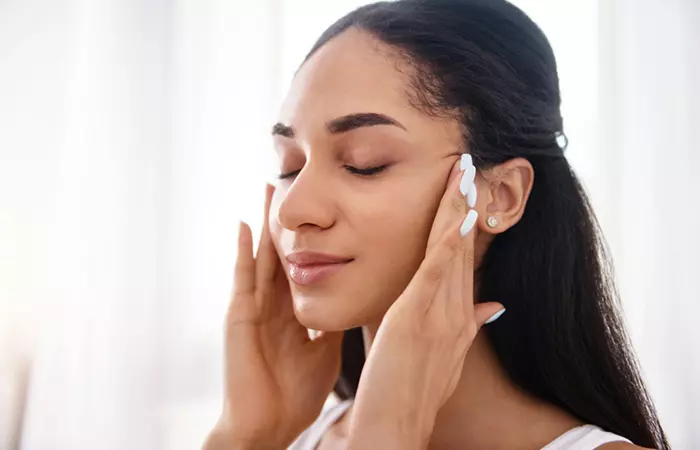
The Shibai point massage helps improve circulation and reduces sinus pain and headache. Here’s how to do it:
- Place your index fingers on your cheekbones.
- Press the points gently.
- Do this for 5 minutes.
These are 10 acupressure massages you can do for eyes. Listed below are the benefits of doing these exercises.
Benefits Of Acupressure Massage For The Eyes
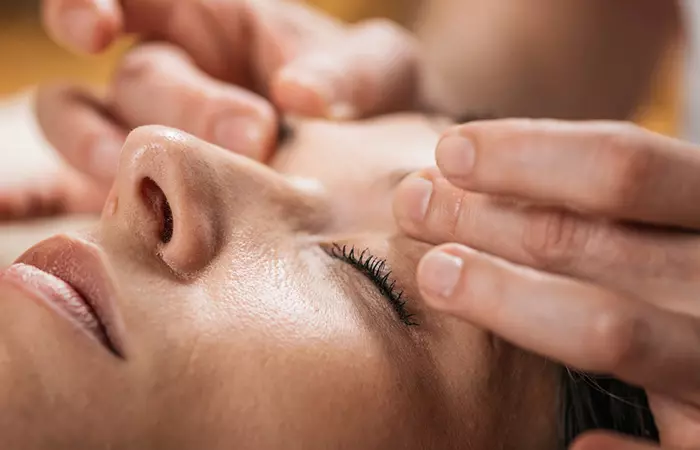
- Improves Vision Problems: Applying gentle pressure to the acupressure points for the eyes may help improve vision.
- Relieves Tension: Massaging the eye acupressure points can help reduce eye tension due to dryness.
- Relaxes The Eyes: Massaging the eyes on acupressure points provides eye strain relief leading to eye fatigue reduction caused due to too much screen time.
- Prevents Eye Twitching: Gently massaging the eyes on the acupressure points may help reduce eye twitching.
- May Help With Glaucoma: Massaging the eye acupressure points may help with glaucoma.
It is important to perform it correctly and safely to reap the benefits. Keep reading to learn more about it.
How To Perform Acupressure Safely
- Always wash your hands before starting to ensure cleanliness and avoid infection.
- Use gentle pressure; avoid pressing too hard, especially around the eyes, to prevent injury.
- Avoid acupressure if you have any eye conditions, injuries, or infections.
- Don’t perform acupressure immediately after eye surgery or if you have experienced recent trauma to the area.
- Be cautious with the pressure points; if you feel pain or discomfort, stop immediately.
- Stay relaxed and take your time; rushing can lead to improper technique or injury.
- If you are unsure about the technique, consider consulting a healthcare professional for guidance.
Infographic: Top 5 Best Acupressure Massage Points For The Eyes
Acupressure is an age-old traditional practice of massage that encourages movement and steady flow of energy by working over the different channels in the body. Acupressure is also extremely effective for the eyes for improving vision and relieving headaches. Check out the infographic below discussing the top 5 acupressure massages for eyes.
Some thing wrong with infographic shortcode. please verify shortcode syntaxAcupressure is an ancient therapeutic treatment that helps heal various ailments based on pressure points. Doing these exercise refgularly increases blood circulation and facilitates the right energy flow. It has been used to improve vision and heal various eye problems like myopia, cataract, color blindness, and astigmatism. Identifying the right pressure points for vision and including these exercises under the supervision of a licenced acupressure practitioner would help you see an improvement in eyesight soon.
Frequently Asked Questions
Can eye exercises cure myopia?
There is no evidence to show that acupressure cures myopia. Hence, it is better to consult a doctor and get lenses.
Can acupuncture help with eye floaters?
Yes, acupuncture can help with eye floaters. However, it is important to remember that acupressure and acupuncture are different. Acupuncture involves using needles to stimulate certain points on the body, while acupressure does not.
Can acupuncture repair optic nerve damage?
Damage to the optic nerve causes a few key genes, essential for healthy vision, to express abnormally. While acupuncture may not undo all of the harm, it may normalize some of it and possibly reverse the damage to some extent (10).
Dry, itchy eyes got you down? Check out the video to learn exercises and pressure points to help relieve red, blurry and tired eyes.
References
Articles on StyleCraze are backed by verified information from peer-reviewed and academic research papers, reputed organizations, research institutions, and medical associations to ensure accuracy and relevance. Read our editorial policy to learn more.
- Mehta, Piyush et al. “Contemporary acupressure therapy: Adroit cure for painless recovery of therapeutic ailments.” Journal of traditional and complementary medicine vol. 7,2 251-263.
https://www.ncbi.nlm.nih.gov/pmc/articles/PMC5388088/ - Gardani, G et al. “Effect of acupressure on nausea and vomiting induced by chemotherapy in cancer patients.” Minerva medica vol. 97,5 (2006): 391-4.
https://pubmed.ncbi.nlm.nih.gov/17146420/ - Au, Doreen W H et al. “Effects of acupressure on anxiety: a systematic review and meta-analysis.” Acupuncture in medicine : journal of the British Medical Acupuncture Society vol. 33,5 (2015): 353-9.
https://pubmed.ncbi.nlm.nih.gov/26002571/ - Batvani, Marzieh et al. “The Effect of Acupressure on Physiological Parameters of Myocardial Infarction Patients: A Randomized Clinical Trial.” Iranian journal of nursing and midwifery research vol. 23,2 (2018): 143-148.
https://www.ncbi.nlm.nih.gov/pmc/articles/PMC5881232/ - Hsieh, Ching Hsiu et al. “Effects of auricular acupressure on weight reduction and abdominal obesity in Asian young adults: a randomized controlled trial.” The American journal of Chinese medicine vol. 39,3 (2011): 433-40.
https://pubmed.ncbi.nlm.nih.gov/21598412/ - Harris, Richard E et al. “Using acupressure to modify alertness in the classroom: a single-blinded, randomized, cross-over trial.” Journal of alternative and complementary medicine (New York, N.Y.) vol. 11,4 (2005): 673-9.
https://pubmed.ncbi.nlm.nih.gov/16131291/ - Her, Jiann-Shyan et al. “Intraocular pressure-lowering effect of auricular acupressure in patients with glaucoma: a prospective, single-blinded, randomized controlled trial.” Journal of alternative and complementary medicine (New York, N.Y.) vol. 16,11 (2010): 1177-84.
https://pubmed.ncbi.nlm.nih.gov/21058884/ - Gao, Haixia et al. “Auricular acupressure for myopia in children and adolescents: A systematic review.” Complementary therapies in clinical practice vol. 38 (2025): 101067.
https://pubmed.ncbi.nlm.nih.gov/31672461/ - Lee, Jong Soo et al. “Electrical stimulation of auricular acupressure for dry eye: A randomized controlled-clinical trial.” Chinese journal of integrative medicine vol. 23,11 (2017): 822-828.
https://pubmed.ncbi.nlm.nih.gov/27080998/ - Acupuncture Treatment Reverses Retinal Gene Expression Induced by Optic Nerve Injury via RNA Sequencing Analysis
https://www.frontiersin.org/journals/integrative-neuroscience/articles/10.3389/fnint.2019.00059/full
Read full bio of M. Narendran Muthukrishnan
Read full bio of Ravi Teja Tadimalla
Read full bio of Sindhu Koganti






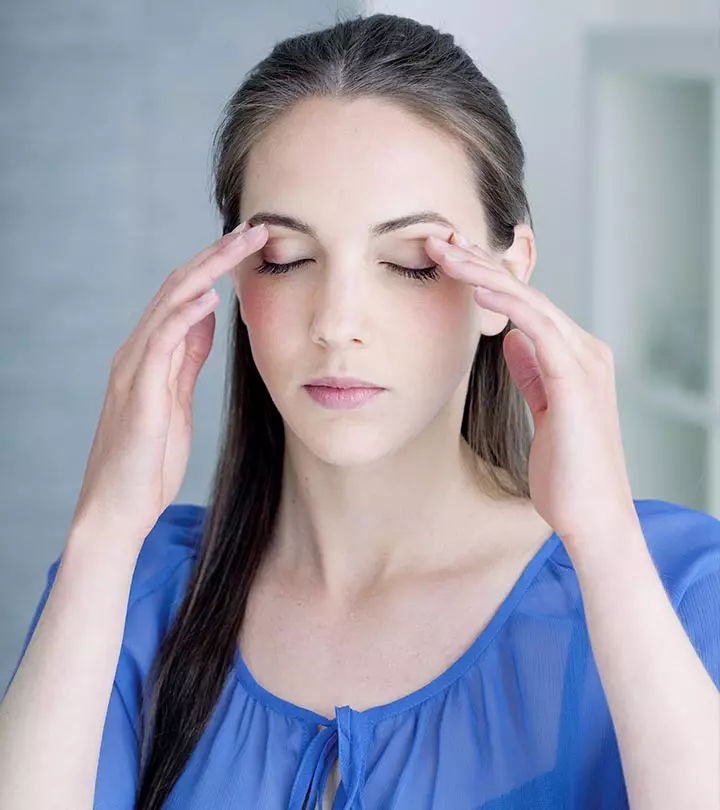
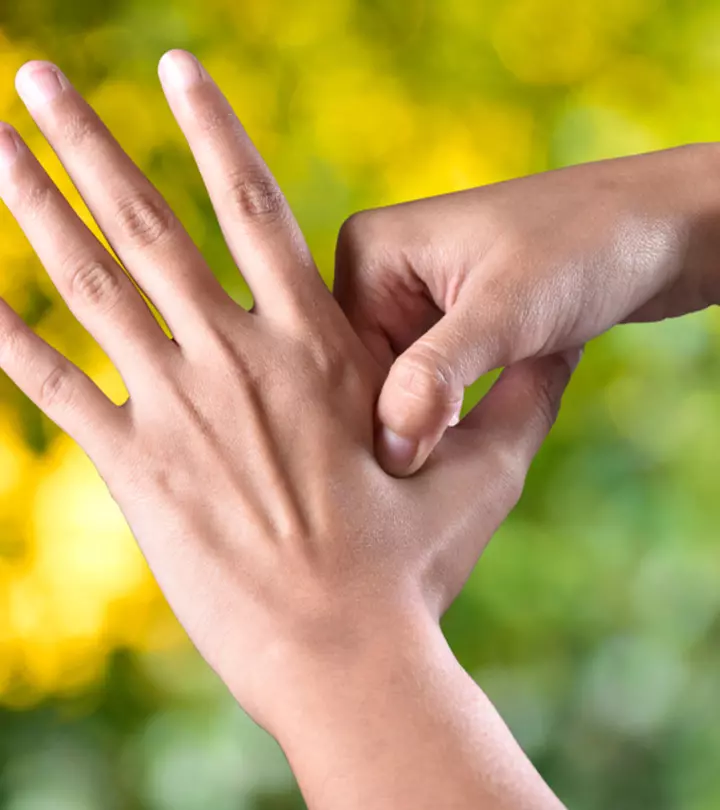
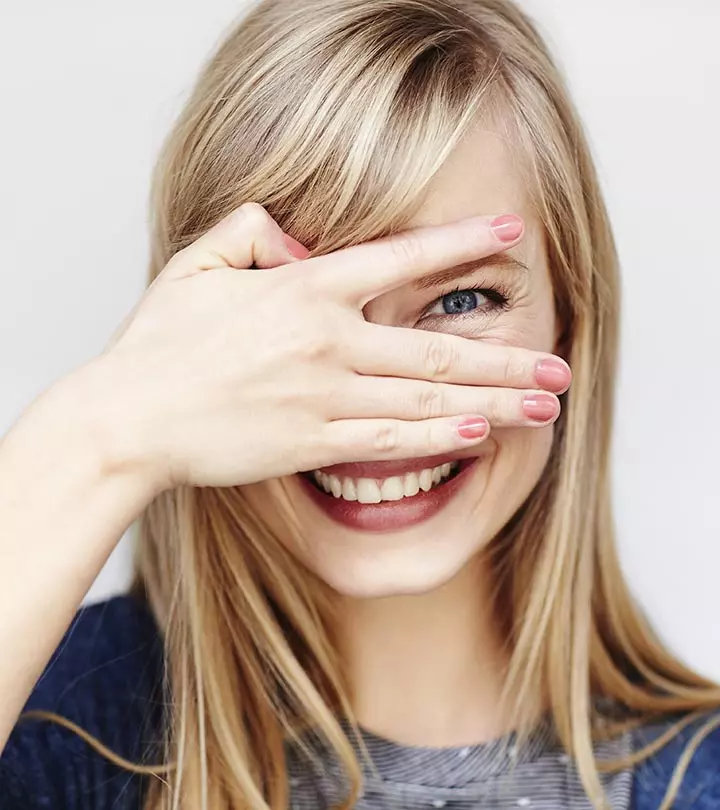
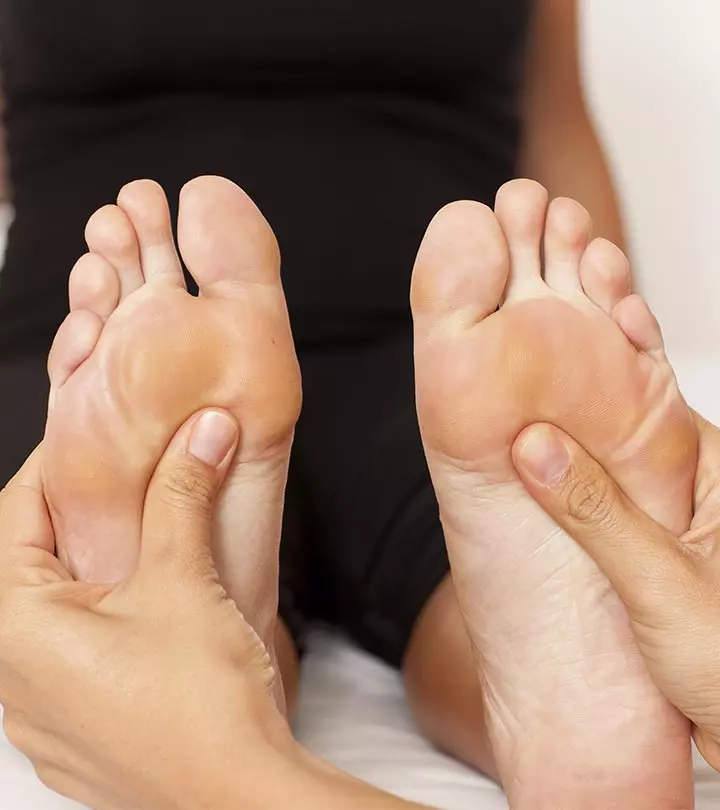
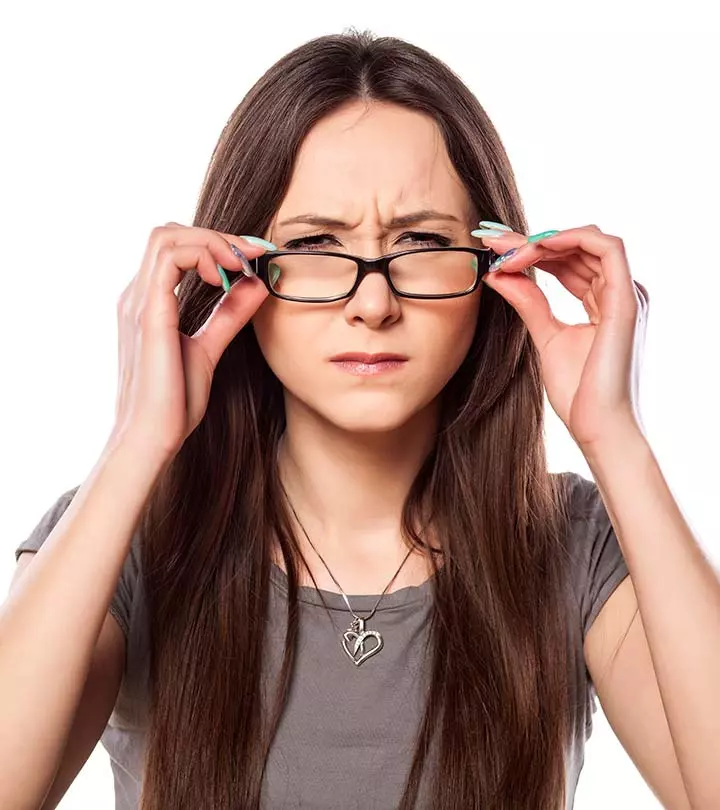

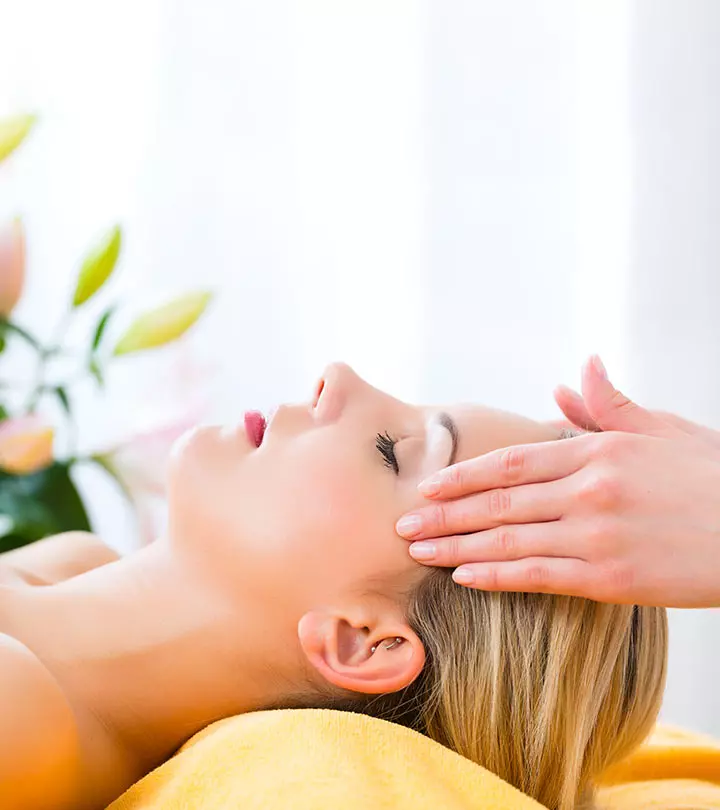
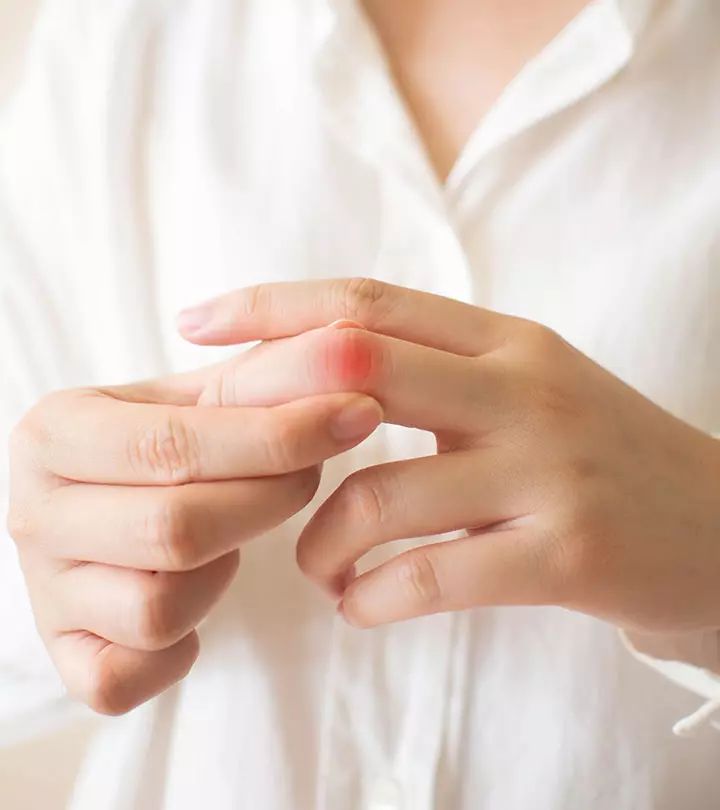
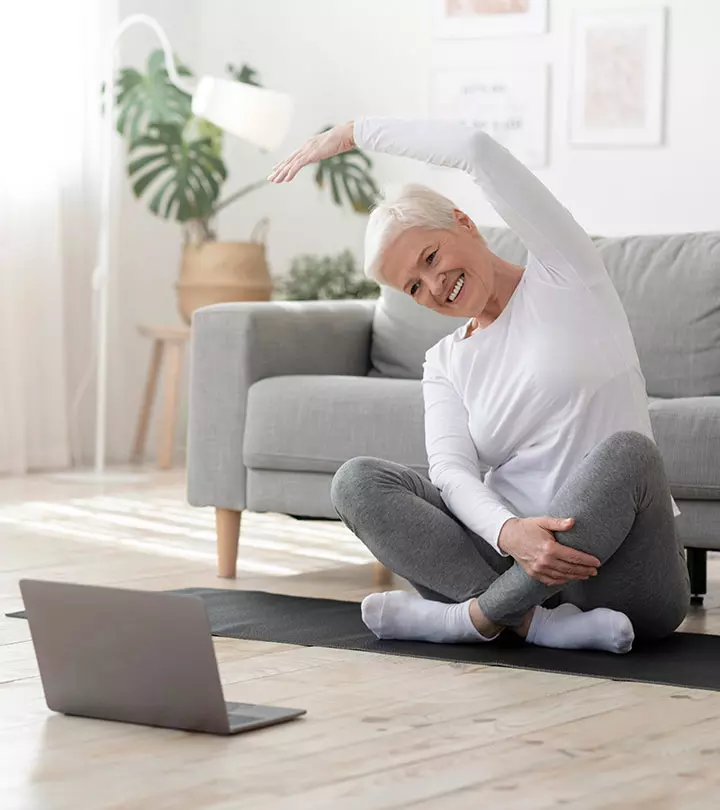



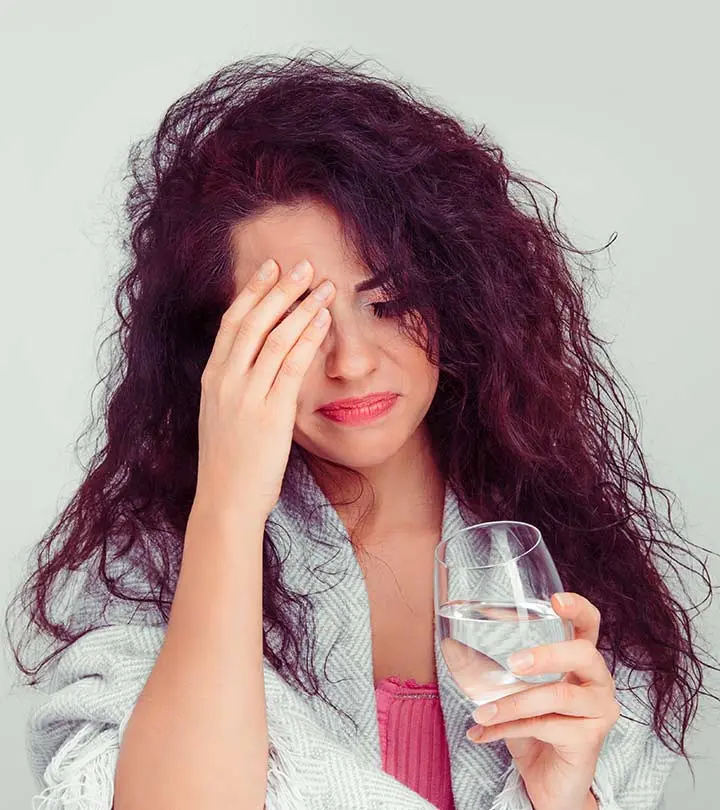
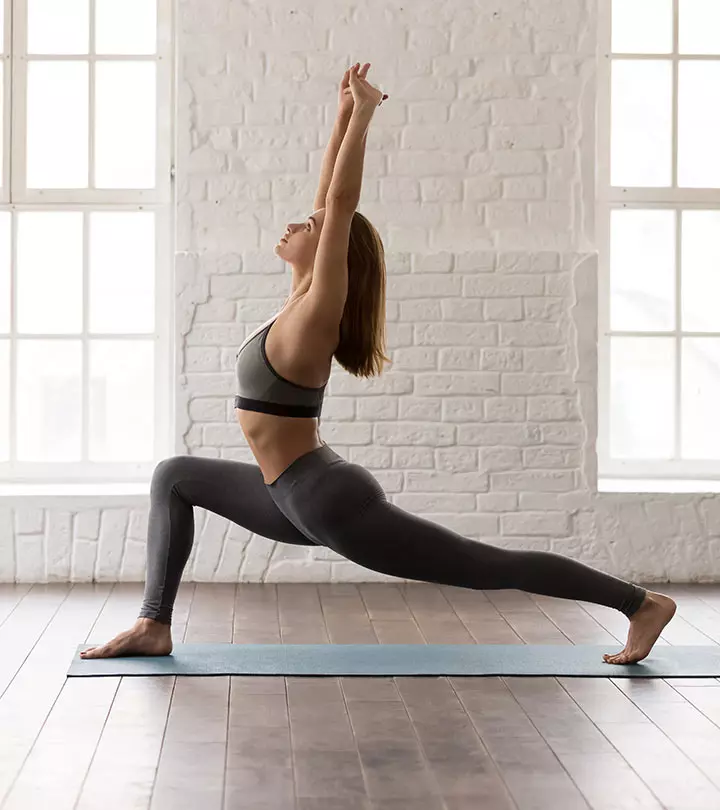
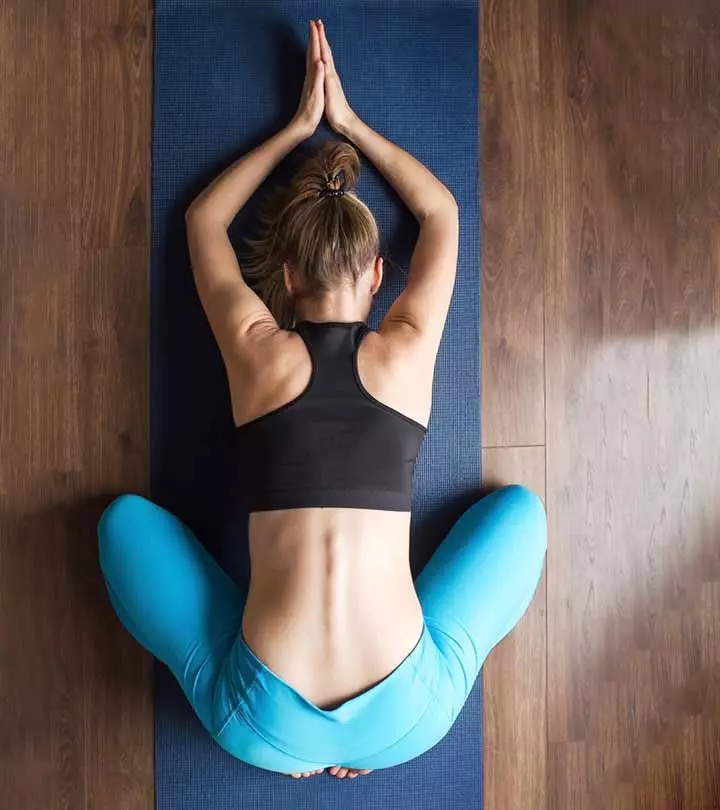
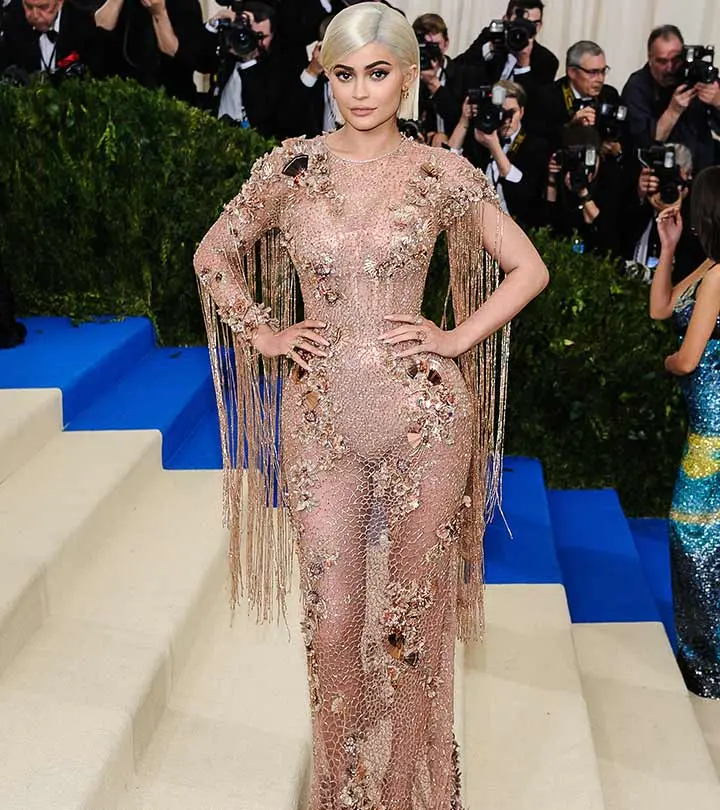
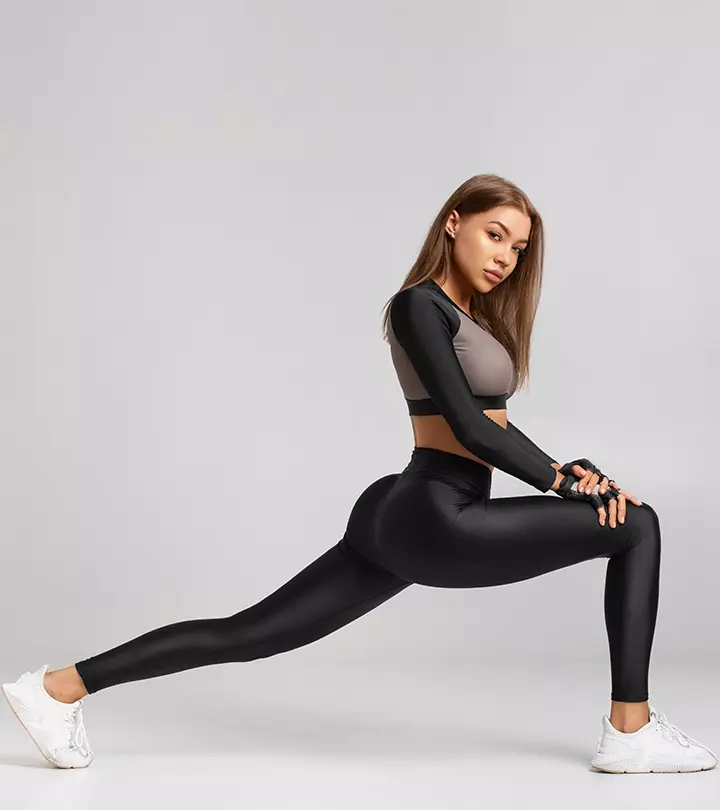

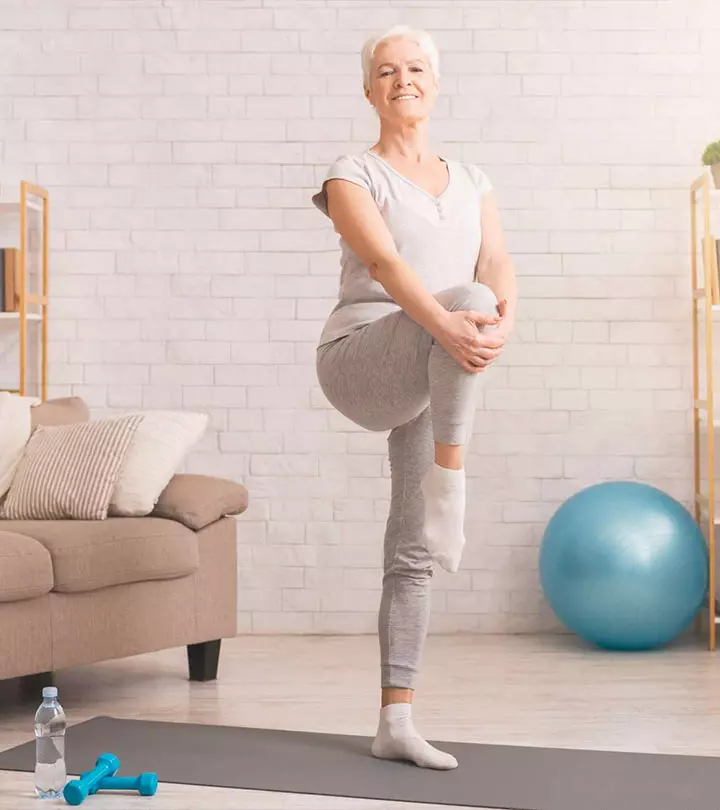
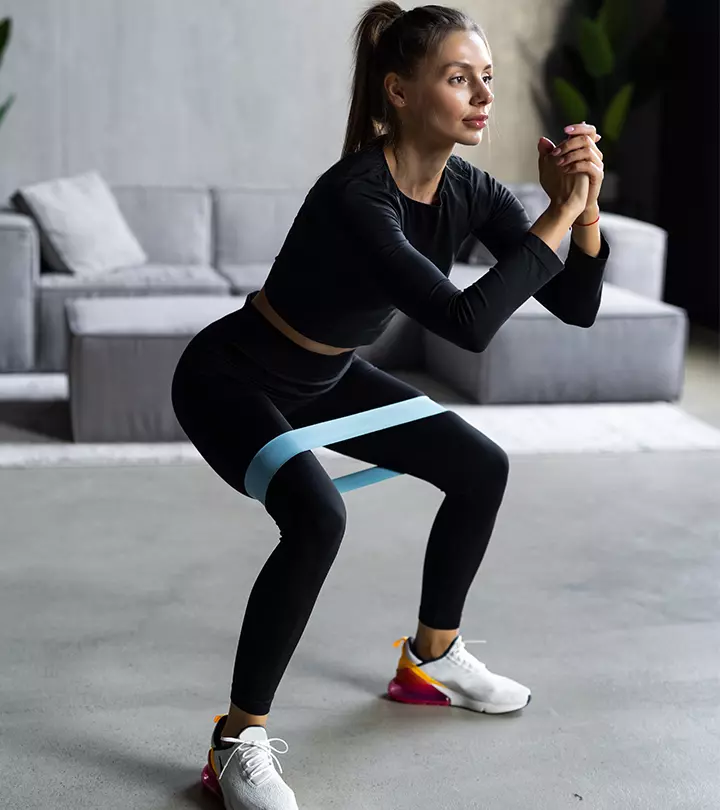
Community Experiences
Join the conversation and become a part of our empowering community! Share your stories, experiences, and insights to connect with other beauty, lifestyle, and health enthusiasts.